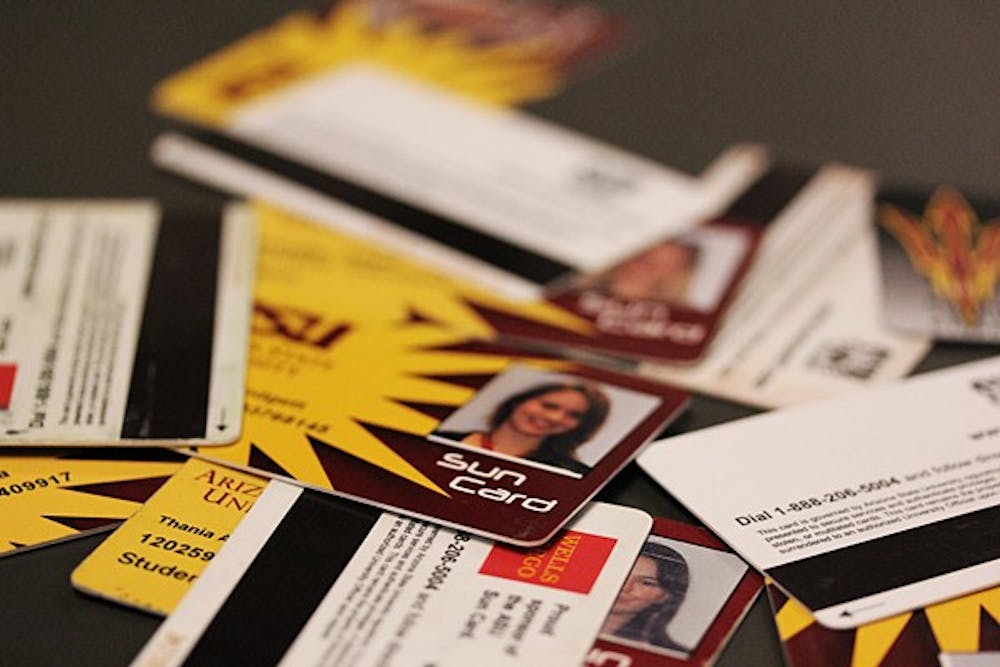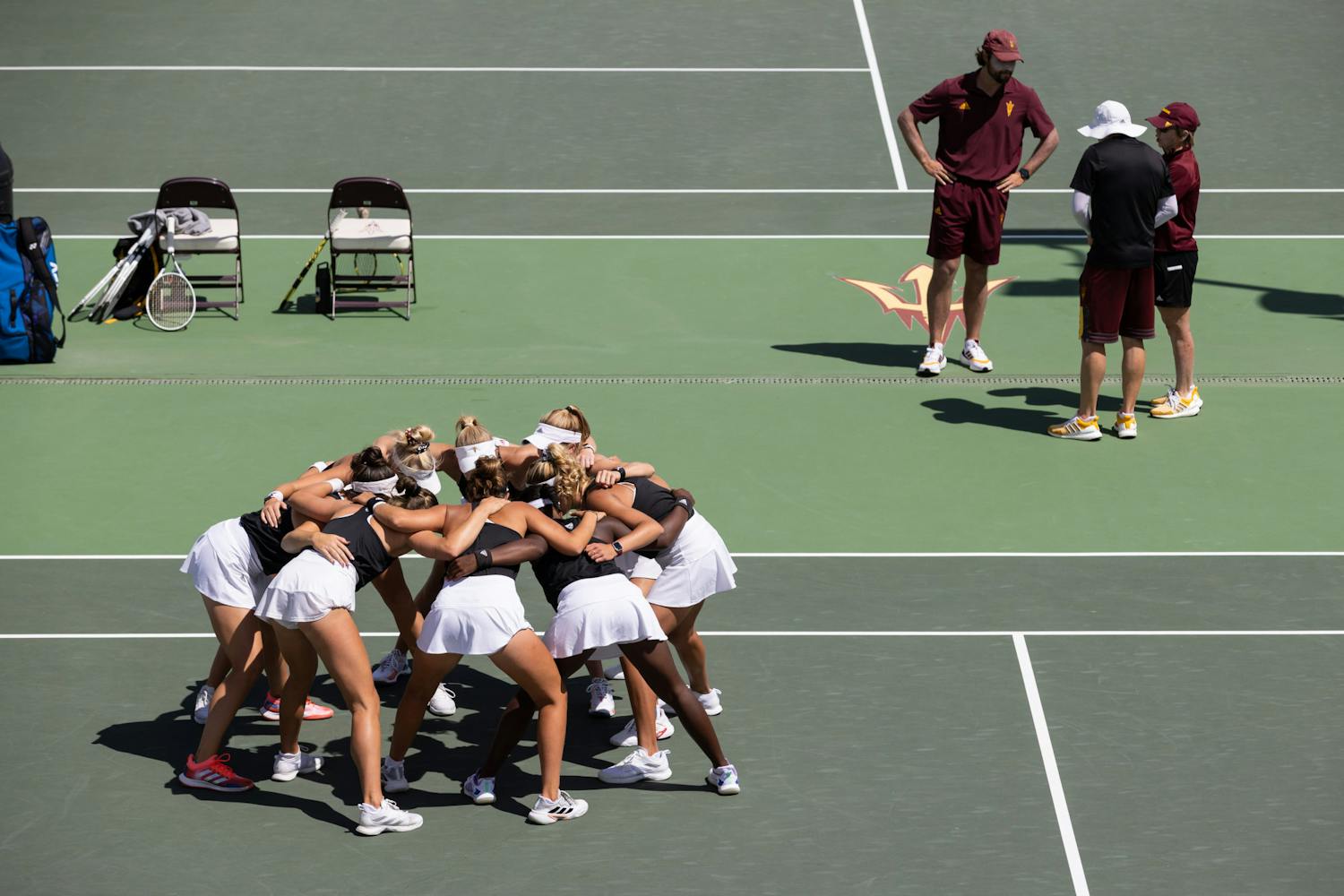 Blackboard Inc. is able to track various student data, from the number of clicks on an online course to when and where student identification cards are swiped. ASU uses this information to monitor online course and determine things such as how much food needs to be purchased for dining halls. (Photo illustration by Jenn Allen)
Blackboard Inc. is able to track various student data, from the number of clicks on an online course to when and where student identification cards are swiped. ASU uses this information to monitor online course and determine things such as how much food needs to be purchased for dining halls. (Photo illustration by Jenn Allen)Blackboard, an inevitable part of student life, does much more than house online course content — it also tracks student activity in those classes and follows student identification card transactions.
Matthew Pittinsky, one of Blackboard Inc.’s co-founders, said Blackboard has grown beyond its original purpose of making it easier for teachers with little-to no-programming skills to create class websites.
Since then, Blackboard has grown to encompass not just the website and mobile application, but the campus card system used to access dorms and other residential amenities, Pittinsky said.
The University also announced today that it will begin using Blackboard Connect 5 to send ASU Alert and Advisory messages, with the first test of the new system taking place in January.
University Technology Office Academic Technology Support Group Director Ruvi Wijesuriya said teachers can activate tracking on any type of Blackboard content, down to the number of times a link is clicked.
For instance, if a student complains about being quizzed on content that was never covered in class, a teacher can check if he or she visited the online material for it, Wijesuriya said.
Wijesuriya said it is not a perfect system.
“Obviously, a student can click on something and watch TV,” he said.
He said he does not see anything unreasonable about Blackboard’s tracking system, because it is no different than a teacher being able to watch a student in the classroom.
Only the instructor of a course can view his or her students’ Blackboard activity, Wijesuriya said.
Data tracked includes what web browser a student is using and where he or she is geographically, based on the computer’s IP address.
Blackboard’s mobile application tracks similar data, Wijesuriya said, and even makes it possible to tell which types of mobile devices are being used.
The usage for all devices is about the same on weekends, but Apple products dominate during the school week, Wijesuriya said.
Tracking features are not meant to stalk the student but to improve learning, Wijesuriya said. A veteran teacher must put more planning into an online course because content needs to be structured and properly bridged.
“You put your lessons out there and hope a student gets it,” he said.
Laura Ploughe, director of business application and fiscal control, said in an email that the ASU dining halls are equipped with MICROS point-of-sale devices, which are used to read student cards via an integrated magnetic stripe reader.
The collected data is mainly used to determine the number of products sold or money transacted at a device.
“Food preparation and supplies ordering is partially dictated by this data, as well as operational decisions on what products are popular and if pricing or discounts and offers drive usage,” Ploughe said.
The system cannot tell who used the card or when the card was used, retaining a student’s anonymity.
“Student data is always protected by the ASU Information Security policy as well as (the Federal Educational Rights and Privacy Act),” Ploughe said.
Recently, similar hand-held devices have been used in new areas such as the mobile food trucks, she said.
Reach the reporter at smande17@asu.edu




